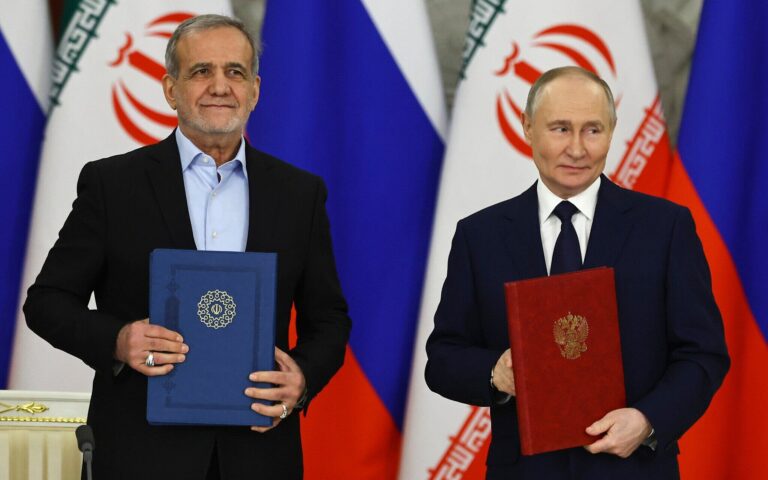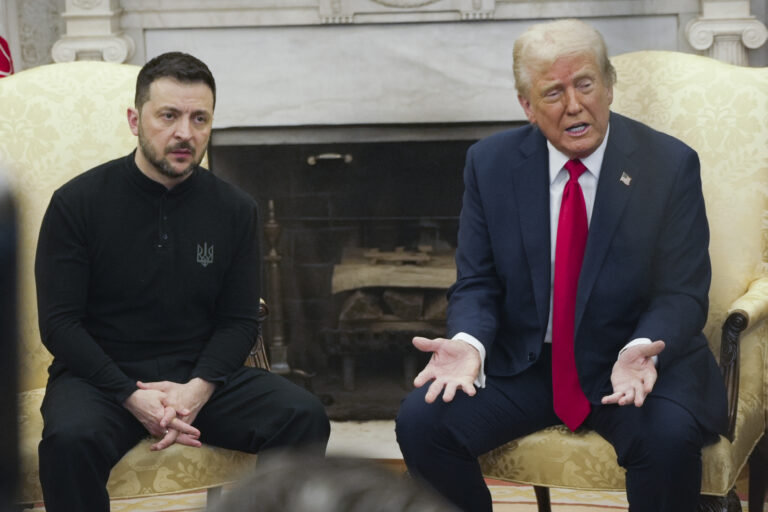Seeking to calm a furor over U.S. surveillance, President Barack Obama on Friday called for ending the government’s control of phone data from hundreds of millions of Americans and immediately ordered intelligence agencies to get a secretive court’s permission before accessing such records. Still, he defended the nation’s spying apparatus as a whole, saying the intelligence community was not “cavalier about the civil liberties of our fellow citizens.”
The president also directed America’s intelligence agencies to stop spying on friendly international leaders and called for extending some privacy protections to foreign citizens whose communications are scooped up by the U.S.
Obama said the U.S. had a “special obligation” to re-examine its intelligence capabilities because of the potential for trampling on civil liberties.
“The reforms I’m proposing today should give the American people greater confidence that their rights are being protected, even as our intelligence and law enforcement agencies maintain the tools they need to keep us safe,” Obama said in his highly anticipated speech at the Justice Department.
“This debate will make us stronger,” he declared. “In this time of change, the United States of America will have to lead.”
Obama’s announcements capped the review that followed former National Security Agency analyst Edward Snowden’s leaks about secret surveillance programs. If fully implemented, the president’s proposals would lead to significant changes to the NSA’s bulk collection of phone records, which is authorized under Section 215 of the USA Patriot Act.
Even with Obama’s decisions, key questions about the future of the surveillance apparatus remain. While Obama wants to strip the NSA of its ability to store the phone records, he offered no recommendation for where the data should be moved. Instead, he gave the intelligence community and the attorney general 60 days to study options, including proposals from a presidential review board that recommended the telephone companies or an unspecified third party.
Civil libertarians said Obama did not go far enough. Anthony Romero, the executive director of the American Civil Liberties Union, said the president’s proposals would not substantially change the government’s bulk collection of phone data.
“He seems to endorse amending bulk data collection but not ending it,” Romero said in a telephone interview.
The ACLU will press on in its lawsuit against the administration’s phone surveillance, Romero said. A federal judge in New York upheld the phone sweeps last month, but the ACLU has appealed the ruling. Romero acknowledged that appeals judges might cite Obama’s changes and not rule on the case.
There appeared to be some initial confusion about Congress’ role in authorizing any changes. An administration official said Obama could codify the data transfer through an executive order, while some congressional aides said legislation would be required.
Sen. John McCain, R-Ariz., said he would introduce legislation to create a special Senate committee to examine the issues and exercise congressional oversight.
Congress would have to approve a proposal from the president that would establish a panel of outside attorneys who would consult with the secretive Foreign Intelligence Surveillance Court on new legal issues that arise. The White House says the panel would advocate for privacy and civil liberties as the court weighed requests for accessing the phone records.
Kentucky Republican Sen. Rand Paul, a leading congressional civil liberties advocate, said he was disappointed in Obama’s proposals. He said it’s unconstitutional to search email and phone records without a warrant and he will continue to challenge the NSA’s spying programs.
“President Obama’s announced solution to the NSA spying controversy is the same unconstitutional program with a new configuration,” Paul said. “The American people should not expect the fox to guard the henhouse.”
Many Democrats said the president made important reforms, but did not go far enough. “We will make sure that President Obama follows through on the promises he made today and will fight for further legal reforms to safeguard against indiscriminate, bulk surveillance of everyday Americans,” Rep. Jerrold Nadler, D-N.Y., said in a statement.
The moves are more sweeping than many U.S. officials had been anticipating. People close to the White House review process say Obama was still grappling with the key decisions on the phone record collections in the days leading up to Friday’s speech.
Obama only briefly mentioned Snowden, whose disclosures are largely credited with sparking the White House review.
“The sensational way in which these disclosures have come out has often shed more heat than light, while revealing methods to our adversaries that could impact our operations in ways that we may not fully understand for years to come,” Obama said.
While the president has said he welcomed the review of the nation’s sweeping surveillance programs, it’s all but certain the study would not have happened without the leaks. Snowden faces espionage charges in the U.S., but is currently living in Russia, where he was granted temporary asylum. Some privacy advocates have pressed Obama to grant Snowden amnesty or a plea deal if he returns to the U.S., but the White House has so far dismissed those ideas.
The surveillance revelations have caused particular anger abroad, especially over disclosures that the U.S. was monitoring the communications of friendly foreign leaders including German Chancellor Angela Merkel and Brazilian President Dilma Rousseff. Obama said new guidelines will cut back on foreign leader monitoring, except when there is a compelling national security interest.
“The leaders of our close friends and allies deserve to know that if I want to learn what they think about an issue, I will pick up the phone and call them rather than turning to surveillance,” Obama said.

Philipp Missfelder, a senior lawmaker with Merkel’s party who is awaiting confirmation to become Germany’s coordinator for U.S. relations, welcomed the planned changes.
“Obama’s speech is an important contribution toward restoring the trust we’ve lost in our close friend and ally in the past months,” Missfelder told The AP in an email. “What’s particularly welcome is that in future the same rules will apply to citizens of other states as for Americans.”
German government spokesman Steffen Seibert, too, welcomed Obama’s speech but cautioned that details of the plans still needed to be analyzed. “The government continues to expect that German law be respected on German territory, including and particularly by our close partner,” he tweeted.
The reaction was not as warm in Brazil, where Rousseff’s office said she would not comment. Sen. Vanessa Grazziotin, who heads the Senate panel investigating U.S. spying there, said in a statement that “the spying on friends and allies should have never happened.”
Obama said reviews have not uncovered any government abuse of the intelligence programs during its review process. “Having said that,” Obama added, “I believe critics are right to point out that without proper safeguards, this type of program could be used to yield more information about our private lives and open the door to more intrusive, bulk collection programs.”
Many of the president’s recommendations were aimed at increasing the public’s trust in the spying operations. That includes lifting some of the secrecy surrounding the demands that might be sent to companies for data on customers involved in a national security investigation. The White House says those demands, called “national security letters,” will no longer remain secret indefinitely, unless the government establishes a need for the secrecy when they are being used in an investigation.
Roughly 20,000 such letters are sent yearly by the FBI to banks, telecommunication companies and other businesses, but recipients are barred from disclosing anything about them. Obama wants to change that and allow some of the information to be made public.
(AP)











2 Responses
Obama seems to have forgotten that since the NSA is part of the executive branch, he is the boss. He doesn’t need to “propose” – he simply needs to “order.”
Obama is alway reinventing him self and America is going down the tub what a great president it serves us right